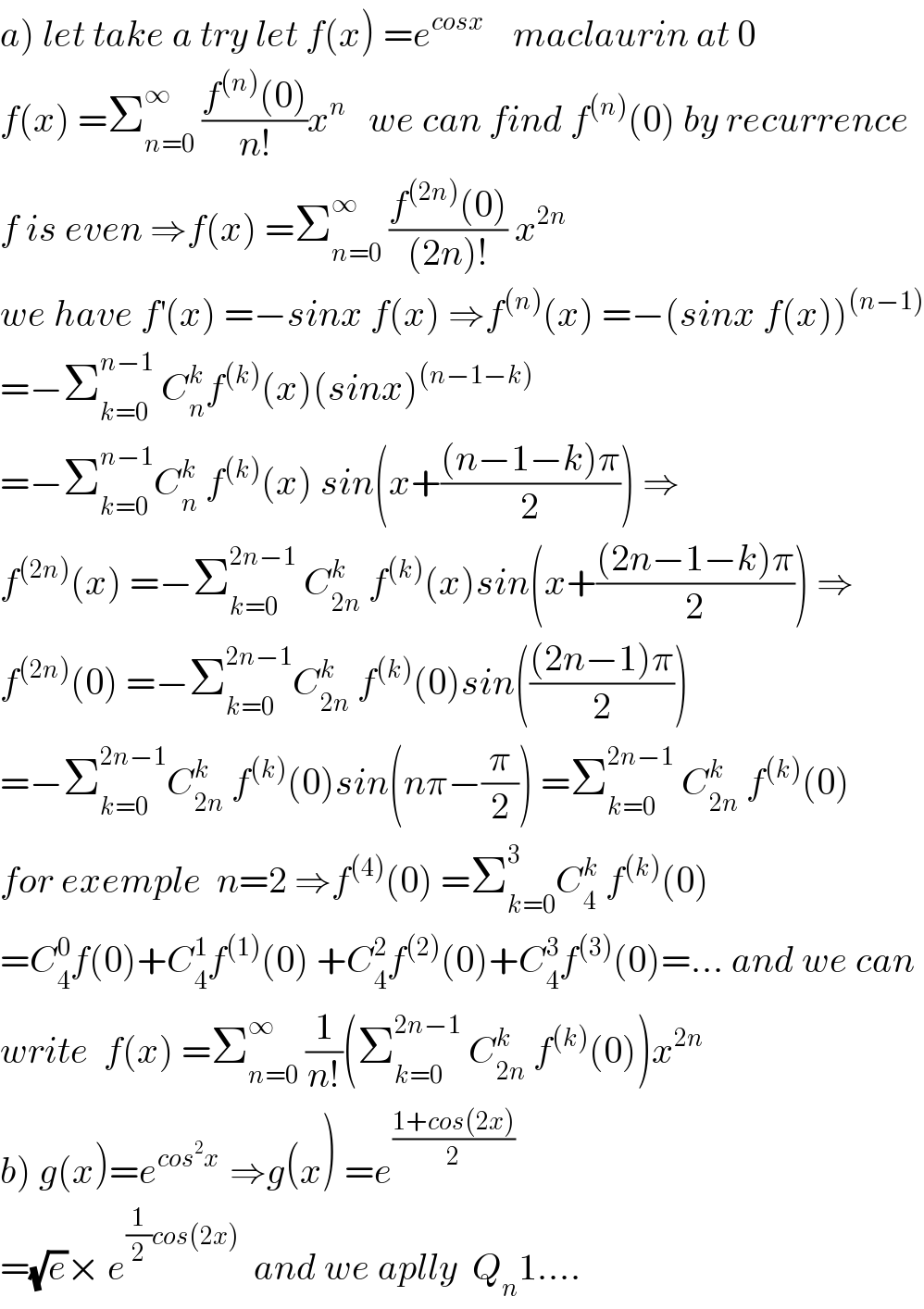
Question and Answers Forum
Question Number 94110 by Jidda28 last updated on 16/May/20

Commented by mathmax by abdo last updated on 17/May/20

Commented by abdomathmax last updated on 17/May/20

Answered by niroj last updated on 17/May/20

Commented by mathmax by abdo last updated on 17/May/20

